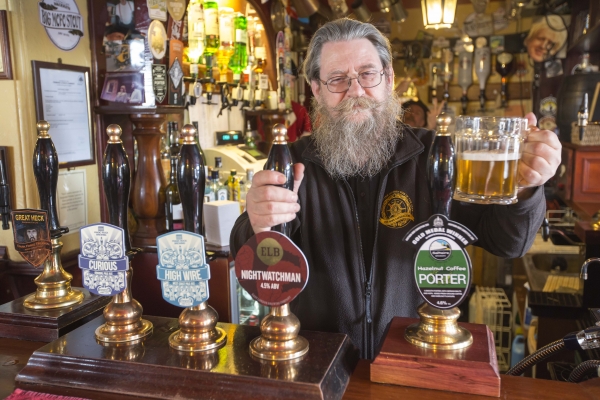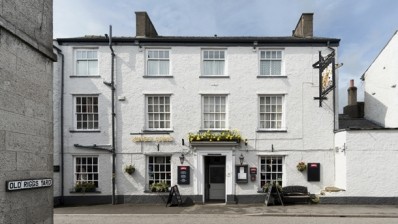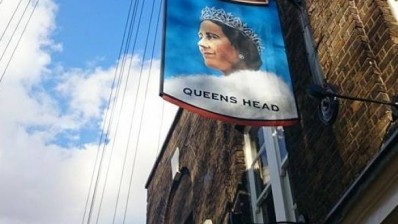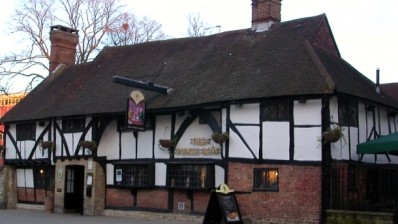Could community-owned pubs be the saviour of the sector?
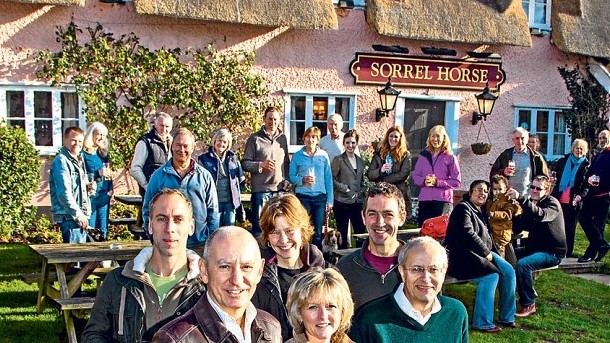
Drink-led community pubs have come under increasing pressure in recent years as dwindling numbers continue to test the resilience of licensees nationwide.
Yet, at the same time, threatened pub closures are increasingly met with zealous “protect our pub” campaigners and the wider dissemination of the asset of community value (ACV) term.
Perhaps, then, now is the time that such public defiance should be put to more concentrated use?
Community ownership is often perceived as a very last resort — handing the keys over to uninitiated individuals whose only experience of running a pub is drinking in one — but, thanks to government funding and new initiatives, it now represents a very credible alternative.
Indeed, for retiring licensees and others making the decision to move on, such a model could, in the right circumstances, put a stop to change of use concerns under new ownership.
Opportunity
“Although we only have about 60 community-owned pubs at the moment, I think you will see up to 30 come through each year from now on,” John Longden, chief executive of Pub is the Hub explains.
“There are two really important reasons for this — firstly, there are a number of excellent funding schemes available to communities and, secondly, the growing emphasis placed on the social value of pubs to the community is seeing many locals take matters into their own hands.”
Counter-intuitively, current initiatives make it easier for locals to fund the purchase of a pub than experienced publicans and, despite having strong feelings on the issue, Longden believes that such adversity can lead to a number of successful solutions.
“The lack of funds for independents is one of the main challenges that Pub is the Hub faces but there are legitimate long-term opportunities for a galvanised community to preserve its local pub.”
In addition to government support, Pub is the Hub and the British Institute of Innkeeping (BII) will, next month, offer community-owned pubs training and mentoring for the first 12 months of operation, as Longden says: “There’s a whole raft of responsibilities when coming into the pub business and, in a way, it is immoral to invite people to take over a pub without providing any training for them in all the responsibilities involved.
“With the BII, we have now worked out a package so that when a community group takes over, they will be plugged into a training package that will help them navigate the trade an awful lot easier.”
Quick success
Unsurprisingly, just under half of the communities who have expressed an interest in running a pub have followed through with their intentions but success has followed many of those who have pushed ahead with plans.
For Rodger Molyneux, experienced licensee and operations director at the Hope in Carshalton, the support of the community enabled him to spearhead a campaign to first acquire the lease of the Punch-owned site and, ultimately, buy the freehold of the now hugely successful pub in 2015.
When Punch was preparing to sell the lease to an Indian restaurant, Molyneux and five friends set up a closed limited company and appealed to the local community to invest in the south-west London pub.
With a total of 46 shareholders, the Hope is now very much a fixture of the local area, as Molyneux proudly points out: “The reasons why the Hope is the success it is comes from having a style and a business plan that we stick to — we knew what was needed in our village and gave the community what it wanted.
“We don’t have Sky TV, we don’t have background music, no fruit machines or pool tables, we knew this village wanted a place to meet and drink lots of good beer and that’s exactly what we’ve provided,” Molyneux explains.
“We said to Punch from the start that we had future intentions of buying the pub and, as it happened, we grew popular very quickly and reached stage four of our business plan within 12 months.
“In the end, we paid £500,000 plus VAT for the freehold, half of which we managed to save up out of our trading profits and we then appealed to the existing shareholders, most of whom were keen to put in more money.
“The whole thing was self-funded, we’ve never borrowed a penny and, even though the early days were really tough, we got there in the end. Our shareholders couldn’t be more proud to own a stake in the pub.”
For Punch’s part, which has received its fair share of criticism for selling off community pubs, a spokesman says: “There are certain pubs in our portfolio we have earmarked for sale and whenever we receive a realistic and viable offer from the local community we are very happy to give them serious consideration — that has led to us selling pubs to local communities on a number of occasions.”
Partnership prosperity
The Hope’s example shows how a community can come together to support an experienced licensee, rather than run the pub itself — something that Longden believes should happen more often.
“There is no reason why licensees couldn’t form a partnership with the community. If you mix a strong commitment by the community with a working partnership with a licensee, that could be the perfect example of citizenship and bringing the community together.
“If you consider that we like pubs not just for the food and drink but because of the social values it brings, it’s worth trying new ideas and that is certainly a possibility.”
Molyneux agrees and, though he believes there are a number of viable community-owned pubs, thinks his model keeps the best interest of the pub as a business and community hub at its heart.
“The limited company style is better and more sustainable than the ‘one man, one vote’ Community Interest Company (CIC) approach because, with the best will in the world, if somebody has put in £200 and is getting as much say as somebody who has put in £20,000 that’s going to grate after a while.
“Here, the directors look after the running of the limited company and the managers look after the day-to-day running of the pub — that’s the way that it should be, regardless of whether it’s community owned or not.
“This is a business at the end of the day. All the social services we provide like a free coffee morning for the elderly aren’t done out of some cuddly romantic notion of ‘wouldn’t that be nice’ it’s a conscious decision that, although we won’t be making any money that morning, we are embedding people into the pub as part of their local community.
“I am very hopeful there will be more pubs like us because it’s a viable option in a number of different circumstances.”
Flexible solutions
Longden sees community ownership as a multifaceted model that depends on circumstance — while co-operatives are the most common scheme, he points to the Public Works Loan Board scheme, which sees the parish council assume ownership of the pub, as one viable alternative, as well as the community working in tandem with the current licensee to buy the lease off a pubco (if it is on the market).
He says: “Everything that we’ve found as Pub is the Hub has grown is that there are multiple ways to run a pub and we now have 26 schemes that represent that level of flexibility. There isn’t a set template that suits everybody and it is evolving all the time — licensees have to acknowledge that and not be terrified by community-owned pubs.”
